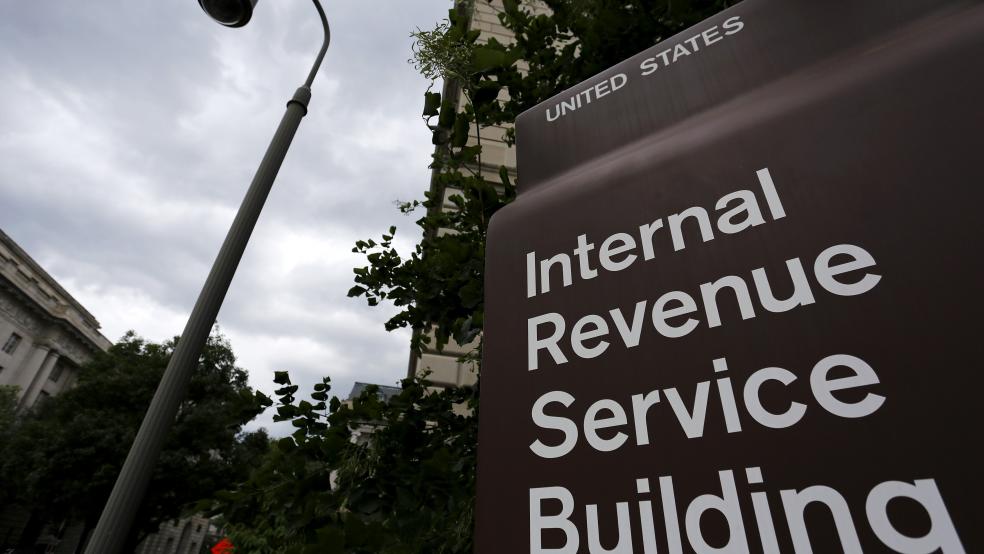The novel coronavirus pandemic has resulted in some serious backlogs at the Internal Revenue Service, the National Taxpayer Advocate writes in a new report to Congress.
Noting that the IRS has done a “tremendous job” under the constraints of the virus and the closings it caused, National Taxpayer Advocate Erin M. Collins nevertheless warns that millions of taxpayers are likely to be affected by the backlog of work that resulted from the closure of the agency’s offices starting in late March.
“The spread of COVID-19 brought much of the country to a grinding halt, and that was largely true of the IRS’s operations — and right in the middle of the filing season no less,” Collins, who took over the job on March 30, says in her first report. “Despite the IRS’s best efforts, there have been notable adverse taxpayer impacts.”
The IRS brought thousands of workers back to their offices this month, and more are set to return in July, but digging out will take a while. Collins also says that IRS closures made it harder for taxpayers to get assistance, whether in person or over the phone, and it will take time for customer service operations to be restored to full capacity.
Millions of taxpayers will have to wait for refunds: Taxpayers who filed paper returns are facing “extreme delays” in having their returns processed after the IRS suspended the processing of those returns at the end of March, the report says. While the vast majority of individual tax returns are filed electronically, the IRS projects more than 10 million paper returns will be filed this tax year.
Many of those returns are still sitting unopened. The agency had an estimated 10 million pieces of unopened mail as of mid-May, and the IRS estimated that it had a backlog of 4.7 million paper filings. As of May 22, the number of processed paper returns was down 75% from the same time last year, compared with a 9% drop in the number of e-filed returns processes. “Taxpayers who filed a 2019 paper return and are entitled to refunds may be in for a long wait,” the report says. “Although the IRS is reopening some of its core operations, it is not clear when it can open and log all the returns sitting in mail facilities.”
Collins adds that some taxpayers who had their returns mistakenly flagged by IRS filters designed to root out identity theft and other fraud are also experiencing “lengthy delays” in getting their refunds. The Taxpayer Advocate Service has said that some of the filters have false positive rates of more than 50%.
Some coronavirus relief payments also delayed: The report says that individuals who did not receive some or all of their “economic impact payments” may have to wait until next year. “To date, the IRS has taken the position that most taxpayers who did not receive their full payments will have to wait until they file their 2020 income tax returns to claim the amounts as credits against their 2020 tax liabilities, even though there is no legal constraint on the IRS’s ability to issue additional EIP amounts as advance refunds during 2020,” the report says. “Making taxpayers wait until next year to receive their EIPs harms the taxpayers and is inconsistent with congressional intent.”
965,000 coronavirus payments to dead people: The report says the IRS sent about 965,000 payments to deceased taxpayers and was aware that 837,000 of those people had died but did not program its systems to exclude the dead. (A Government Accountability Office report last week put the number of payments sent to dead people at nearly 1.1 million.) The taxpayer advocate says that in cases where the IRS sent payments to people it knew had died, the agency should “not spend its resources pursuing enforcement actions against a decedent’s estate or a family member.”
IRS notices with deadlines that have passed: More than 20 million IRS notices could not be mailed in April and May. The IRS has begun sending out those letters, but the report says “some collection notices bear old dates and include response deadlines that often have passed.” The IRS is enclosing an insert in its mailings with updated deadlines, but some taxpayers may not see those notices and think they missed the response deadlines.
New audits down by 65%: The IRS said at the end of March that it would suspended most new audits. From April 1 to June 1, the total number of new audits started dropped by 65% compared to the same period in 2019. Corporate audits fell by 71%. Ongoing audits could also be delayed. “Unfortunately, the taxpayers currently under examination may find that their examinations are taking longer to complete — not only because of the large amount of mail to work through but also because it will take the mail processing functions time to sort the examination mail from the other types of mail accumulated,” the report says.



